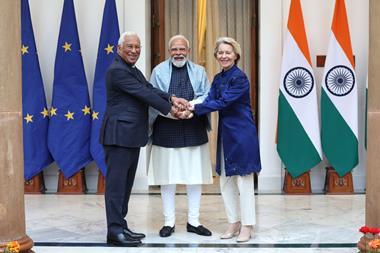Research councils defend the move to focus on research areas that are likely to have direct economic benefits
The chief executives of the UK’s seven research councils have stepped forward to defend moves to reprioritise the nation’s research on projects that offer economic benefits.
The CEOs raised their heads above the parapet amidst the ongoing outcry that followed their decision to force researchers to outline the economic impact of their research in funding applications, and the recent move by Research Councils UK (RCUK) to ’focus [its] investments on key areas of research most likely to benefit the UK economy’.
In a letter sent to The Times newspaper on 11 June, RCUK defended itself against accusations that focusing on economic impact when evaluating science would sideline basic research and taint the scientific endeavour.
’As current world leaders, the UK research community needs to seize the opportunities offered, and that is why the UK Research Councils are placing an increasing focus on the impact of the research we fund,’ the letter states. ’This will not disadvantage basic research, or stifle research creativity or scientific discovery.’
Money and influence
RCUK declared the reprioritisation policy in May, following the announcement in the UK budget that the research councils would need to make efficiency savings of ?106 million. From 2010, funding will focus on research in areas felt to have the greatest economic impact, namely the green economy, life sciences (including health and food), the digital economy, high-value manufacturing systems and services, and the cultural and creative industries.
The move to consider economic impact as a metric to evaluate research has drawn protest from the scientific community. David Kingham of the UK’s R&D Society is wary of drawing such a direct link between research and economic benefit. ’Government policy does appear quite linear on occasions,’ he says. ’It appears they’re thinking they can get very direct economic impact out of funding of research. Actually, the sort of research that our research councils fund is a huge way from market.The issue may be how do you get better interaction between the academic research base and industry in order to get the impact rather than how you prioritise what research is done.’
Kingham does, however, believe there could be some plus points for researchers working under the new conditions. ’Academics who engage with industry often find some very interesting research challenges thrown up,’ he explains. ’So many of them don’t find working with industry a limitation on academic freedom, they actually find it a stimulus to new areas of research.’
But the refocusing drive has also triggered related concerns about the level of influence the UK government has over the research councils. This comes in no small part from the fact that the priority areas identified by RCUK bare a striking resemblance to the priority areas highlighted in the UK government’s industrial strategy published shortly before the budget.
In a select committee meeting last month, UK science minister Lord Drayson, who initiated a debate on ’strategic’ science funding earlier this year, emphatically denied that he pushed the research councils to refocus on specific areas. ’I don’t think it’s right for ministers to [determine] research priorities,’ Drayson added. ’I think it is right for the research community, through the independence of the research councils, through the peer review process, to make these judgements.’
Some, however, are unconvinced that the research councils’ decision is purely coincidence. ’We are concerned government is directly or indirectly influencing research council priorities in a way that could potentially undermine both the breadth of the research base and its ability to develop new lines of enquiry,’ Nick Dusic, director of Campaign for Science and Engineering, recently told Chemistry World. ’The government is responsible for allocating the overall science budget and the budgets of individual research councils, but it shouldn’t be trying to get into picking which areas are going to be the ones that have the greatest economic impact in the future.’
Stuck in the middle
The research councils have the tough job of appeasing the government they are responsible to while remaining an effective and relevant body to the scientific community - two groups with very different approaches, values and modes of operation.
This dual purpose was evident in RCUK’s statements this week as it claimed to be ’committed to working with the research community to deliver the knowledge-based economy that will be central for the nation’s future’ and declared that ’a healthy and vibrant research base is crucial for responding to the economic downturn’.
Alongside this, the chief executives also issued a plea for less in-fighting between the funders of scientific research and those carrying it out: ’In this uncertain economic climate we need the research community to work with us to demonstrate the impact that research has on society and why it is vital to continue to invest in it.’
Whether this will cut it with those on the frontline of scientific research or working outside the favoured fields remains to be seen; but perhaps a telltale sign is a petition demanding the removal of the requirement to outline the economic impact of proposed research, currently boasting over 1,300 signatures.
Anna Lewcock






No comments yet